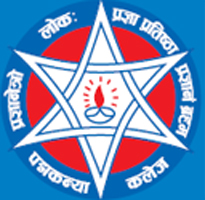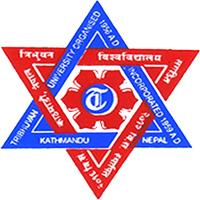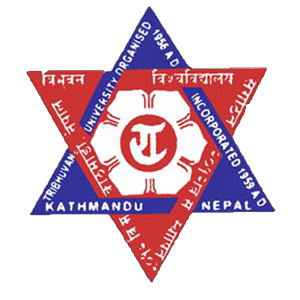Overview
MA in Anthropology at Santwona College, Shantinagar, Kathmandu
MA in Anthropology at Santwona College in Shantinagar, Kathmandu runs under Tribhuvan University (TU). The college supports careful study of people, culture, and social change in Nepal and South Asia. The curriculum mixes classroom learning with guided field tasks and data analysis.
Students attend morning classes that suit commuters from across the valley. Faculty encourage regular reading, note-making, and small research exercises that build confidence for the thesis phase.
Highlights
-
Affiliation: Tribhuvan University (TU)
-
Location: Shantinagar, Kathmandu; accessible for daily travel
-
Structure: Semester-based two-year cycle with coursework and research components
-
Focus areas: Culture, social change, identity, livelihood, health, migration, education
-
Facilities: Library, computer lab with internet, multimedia-supported classrooms
-
Assessment: Internal evaluation, written exams, and a thesis or research project
Curriculum Details
MA in Anthropology at Santwona College follows TU’s structure across four semesters. Coursework develops a strong base in anthropological theory and qualitative research, while allowing you to explore Nepal-focused themes through electives and guided projects.
-
Semester I: Classical and contemporary theories; qualitative approaches; field note practice; ethics in human research
-
Semester II: Area studies on Nepal/South Asia; ethnography reading seminars; elective on development, health, or education; proposal workshops
-
Semester III: Thematic electives such as migration, identity and inequality, gender and family, disaster and resilience, market and livelihood; methods refreshers; pilot study
-
Semester IV: Thesis design, data analysis, and final defense; seminar presentation and viva
Course titles and sequencing follow TU’s framework. The campus adds reading groups, writing labs, and faculty-led tutorials that help you finish term papers and chapters on time.
Objectives
-
Build clear understanding of anthropological theories and debates.
-
Strengthen qualitative research skills for Nepal’s social settings.
-
Improve reading, argumentation, and academic writing.
-
Prepare students for roles in research, planning, teaching, and development work.
Scope
Graduates contribute to social research, monitoring and evaluation, program design, and documentation across NGOs, government projects, and education. Skills transfer to policy analysis, cultural documentation, and user studies in service organizations. Students aiming for MPhil/PhD gain an essential base in theory, fieldwork, and writing.
Learning Outcomes
-
Explain core anthropological theories using examples from Nepal.
-
Plan and conduct ethical fieldwork with sound consent practices.
-
Keep accurate field notes, transcribe interviews, and code data.
-
Write clear chapters that connect literature, methods, and findings.
-
Present arguments with evidence in class seminars and thesis defense.
Skill Development Modules
-
Field methods: Interviewing, participant observation, life histories, focus groups
-
Data handling: Transcription, coding, memo writing, theme development
-
Academic writing: Literature review, citation practice, chapter structuring, editing
-
Public communication: Policy brief drafting, presentation slides, oral defense practice
-
Digital tools: Document organization, basic spreadsheets for data logs, reference managers
Teaching Methodology
Teaching combines lectures, close reading, workshops, and supervised field exercises. Faculty give feedback on proposals, methods, and early drafts. Small cohorts allow timely guidance, while peer review sessions help you improve clarity and flow.
Admission Requirements
-
Eligibility: Bachelor’s degree from a recognized institution in Anthropology or a related field accepted by TU
-
Documents: Transcripts and character certificates, citizenship or passport copy, photographs, and equivalence for foreign degrees if applicable
-
Selection: Application screening; counseling or interview if required; seat confirmation within notified timelines
Prospective students should check the current intake notice for deadlines, seat numbers, and any updated criteria.
Career Opportunities
-
Research assistant/associate: Fieldwork, data analysis, report sections
-
Monitoring and evaluation: Indicator tracking, qualitative assessments, case studies
-
Program roles: Social audit, community facilitation, documentation in NGOs and projects
-
Education and training: Teaching support, workshops, curriculum aids
-
Independent research: Short studies for media, archives, or cultural documentation
Scholarships and Financial Aid
-
Internal concessions: Merit- or need-based support subject to policy and availability
-
External schemes: National or institutional scholarships where eligible
-
Installments: Fee schedules offered as per campus rules
Why Choose This Course?
-
Focused supervision: Topic guidance from proposal to final defense
-
Practical rhythm: Morning classes that support field visits and part-time obligations
-
Resource access: Library holdings, quiet study spaces, and internet-enabled labs
-
Nepal context: Coursework and projects that keep local realities at the center
Conclusion
MA in Anthropology at Santwona College offers a careful path from theory to fieldwork and writing. Students who value close reading, ethical inquiry, and steady progress will find a routine that supports a strong thesis and usable research skills for Nepal’s social sector.





















